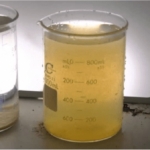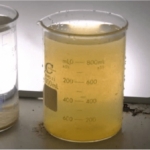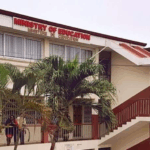
Heavy metal pollution is a growing concern in many parts of Ghana, especially in communities near galamsey (small-scale gold mining) sites.
Toxic metals like arsenic, mercury, lead, and cadmium can seep into rivers, soils, and food crops from mining runoff and mercury use in gold extraction.
Long-term exposure to these metals is linked to serious health issues – from nerve and brain damage to organ failure and cancer.
The good news is that families can take action at home.
This article explores truly cost-free methods to reduce or remove heavy metals from drinking water and foods using only readily available, discarded, or natural materials.
It explains how each method works scientifically and provides step-by-step guidance, backed by research and public health sources, to help keep your household safe.
Heavy Metals and Galamsey: A Hidden Danger
Illegal and small-scale mining (galamsey) often contaminates nearby water sources and farmlands with heavy metals. For instance, mercury used to extract gold can wash into rivers and fish. Arsenic occurs naturally in some gold-bearing rocks and can leach into groundwater.
Lead and cadmium may also be present in mining waste and fertilizers, ending up in soils or water. These metals are odorless and tasteless in water and can accumulate in food crops without obvious signs. Consuming even low levels over time can cause chronic poisoning.
Children and pregnant women are especially vulnerable – lead, for example, harms brain development. This makes it vital for households in mining-affected areas to adopt simple precautions in daily cooking and drinking habits.
Easy Water Purification Techniques
Ghana’s climate and local resources offer several low-cost water treatment methods that require no fancy filters or expensive chemicals. Below are effective techniques using everyday materials like fruit peels, charcoal from cooking fires, and even sunlight.
Each method targets heavy metal contaminants by either adsorbing (binding) the metal ions or physically separating them from the water. You can use these methods individually or even combine them for better results.
Always start with the clearest water possible (let muddy water settle, or filter debris with a cloth) before applying these treatments. And remember: after removing heavy metals, you should still boil or disinfect water to kill microbes if it’s not from a treated source.
Banana Peel Water Filters
Banana peels, a common throw-away item, turn out to be powerful natural water purifiers. Banana peels contain pectin and other compounds with negatively charged carboxyl and hydroxyl groups. These functional groups attract and bind heavy metal ions (which are positively charged) like a magnet.
Researchers have found that dried banana peel can adsorb substantial amounts of metals from water – for example, up to 7.97 mg of lead and 5.71 mg of cadmium per gram of peel in lab tests.
In fact, minced banana peel was shown to remove lead and copper from river water as effectively or better than many commercial filtering materials. Banana peel filters worked across a wide range of water pH and could be reused multiple times without losing potency.
How to use banana peels to purify water:
1. Collect and prepare peels: Rinse banana peels to remove dirt or pesticides, then cut them into small pieces. For best results, sun-dry the peel pieces or lightly heat them (not burning) to remove moisture – dry peels seem to adsorb metals more effectively. You can crush or grind the dried peels into a coarse powder if possible, to increase the surface area.
2. Soak or filter the water: Place the peel pieces/powder in the contaminated water. Use about one peeled banana’s worth of material per few liters of water (exact amounts aren’t critical; more peel can grab more metal). Stir the water and let it sit for at least 30 minutes. During this time, the heavy metal ions will attach to the banana peel. Studies show that simply mixing banana peel with arsenic-spiked water and shaking for 30 minutes removed up to 90% of the arsenic.
3. Separate the peels and use the water: After soaking, strain out the banana peels by pouring the water through a clean cloth or fine mesh. The heavy metals remain bound to the peels you remove. Discard the used peels in the trash or by burying – do not eat them or feed them to animals, since they now contain the concentrated toxins. Finally, for drinking water, it’s wise to boil or disinfect the filtered water.
Rice Husk and Plant Waste Adsorbents
Rice husks, coconut shells, maize cobs, or sawdust are excellent natural filters. Rice husks are rich in silica and cellulose, giving them a natural ability to bind metals like lead, cadmium, and copper. To use, pack a cloth bag with clean rice husks and pour water through.
Alternatively, burn the husks lightly to create rice husk ash, stir it into water, and let it settle before decanting. The ash’s fine silica attracts heavy metal ions, cleaning the water. Dispose of the husk or ash safely afterward.
Moringa Seed Powder (Natural Coagulant)
The seeds of the Moringa tree can clarify dirty water and remove some heavy metals. Shell the seeds, grind the kernels into powder, and stir one or two seeds’ worth into a bucket of water. After 30 minutes, particles settle at the bottom. Decant or filter the clear water at the top. The seed’s natural proteins bind with metals and microbes, helping purify the water.
Safer Food Preparation Techniques at Home
Heavy metals also enter through food. These techniques can lower your exposure:
– Wash fruits and vegetables thoroughly to remove dust and soil.
– Peel or discard outer layers of root and leafy vegetables.
– Cook rice or greens in plenty of water and discard the water afterward; this leaches out arsenic and lead.
– Soak produce in mild vinegar or lemon water for 10–20 minutes, then rinse. The acid helps dissolve metal residues.
– Avoid concentrating sauces or dried foods from contaminated produce, as this increases metal concentration.
– Choose smaller fish (like tilapia or sardines) instead of large predators like tuna or shark, which accumulate mercury.
– Eat a varied diet rich in calcium and iron to reduce heavy metal absorption in your body.
Safety and Disposal Tips
Used banana peels, charcoal, or rice husks will contain the metals they absorbed. Do not reuse them or add them to compost for food crops. Bury or discard them safely. Replace and adsorbents regularly. Combining methods – such as Moringa plus sand filter – can improve results. In severely contaminated areas, push for community water testing and alternative clean sources. Join the anti-galamsey campaign.
Conclusion
Heavy metal pollution from galamsey and other sources is a serious challenge, but families can protect themselves using simple science and local resources. Banana peels, rice husks, Moringa seeds, and sunlight can all make water safer. Proper washing, soaking, and cooking reduce metals in food.
These methods cost nothing yet can save lives. Clean water and safe food are possible when households take small, informed steps — turning waste into protection.
The writer is a lecturer at the Department of Food and Nutrition Education, Faculty of Health, Allied Sciences and Home Economics Education, University of Education, Winneba. Email: [email protected]; Phone: 0552508296
- President Commissions 36.5 Million Dollars Hospital In The Tain District
- You Will Not Go Free For Killing An Hard Working MP – Akufo-Addo To MP’s Killer
- I Will Lead You To Victory – Ato Forson Assures NDC Supporters
Visit Our Social Media for More




